Understanding Irritable Bowel Syndrome (IBS): A Guide to a Happier Gut
Irritable Bowel Syndrome (IBS) is like a puzzle that many people are trying to solve. If you've ever experienced stomach pain, bloating, or changes in your bowel habits, you might be familiar with some of the pieces. Let's put the puzzle together and understand what IBS is, what might cause it, and how we can manage it better in the nutritional aspect.
What is IBS?
IBS is a functional gastrointestinal disorder, meaning it is a condition in which the digestive system's normal functioning is impaired without any apparent structural or biochemical abnormalities. Instead, it is characterized by abnormal gut motility and sensitivity, leading to the hallmark symptoms of IBS. It's a bit like your digestive system acting like a rollercoaster, causing symptoms such as:
Abdominal Pain and Cramps: Like a tummy ache that keeps coming back.
Bloating and Gas: Feeling like you've blown up a balloon inside.
Diarrhea, Constipation, or Both: Your bowel habits may change, making it difficult to predict what will happen next.
Acid reflux or indigestion: This could involve heartburn, regurgitation, throat pain, nausea etc
It's important to note that the symptoms of IBS can vary from person to person, and individuals may experience periods of symptom exacerbation followed by periods of remission.
What Causes IBS?
The exact cause of IBS is still a bit of a mystery, but several factors are believed to contribute to its development:
Gut-Brain Connections: Believe it or not, your brain and gut are good friends and talk to each other a lot. When you're stressed, anxious, or overwhelmed, your brain sends signals to your gut. In response, your gut might start acting up, leading to IBS symptoms that influence gut motility, sensitivity, and function.
Altered Microbiota: Think of your gut like a garden. If there are too many weeds (bad bacteria) and not enough flowers (good bacteria), the garden gets messy. Similarly, when there's an imbalance of bacteria in your gut (altered microbiota), it can upset your digestive system, causing inflammation, disturbing gut motility, and heightening the gut-brain signaling, collectively contributing to the development and exacerbation of IBS symptoms. An alternated microbiome could be the result of chronic stress, poor diet, antibiotic use, or even a food poisoning event.
Intestinal Motility Changes: Altered gut motility, characterized by abnormal contractions of the intestines, is considered another contributing factor in IBS. Studies have shown that individuals with IBS may have either increased or decreased motility, leading to symptoms like diarrhea or constipation.
Visceral Hypersensitivity: Individuals with IBS often exhibit heightened sensitivity to pain and discomfort within the gastrointestinal tract. This hypersensitivity can result in the perception of normal gut functions as painful or uncomfortable.
Other possible causes may include low-grade systemic inflammation, intestinal permeability (loosening of the intestinal cells), immune system activation, and genetic factors.
How Diet Can Help?
Food can be your friend in managing IBS. Here are some dietary tips:
Fiber-Rich Foods: Adding fiber-rich foods like fruits, vegetables, and whole grains can help regulate your bowel movements and ease constipation. If you feel worsened symptoms from increasing fiber, it’s helpful to work with a Registered Dietitian to personalize your nutrition and potentially explore lower FODMAP fiber sources to help your body adjust.
Hydration: Drinking plenty of water is crucial to maintain proper gut function. Staying hydrated can prevent constipation and soften stools, making bowel movements more comfortable.
Low-FODMAP Diet: FODMAPs are specific types of carbohydrates that can potentially trigger IBS symptoms. Following a low-FODMAP diet involves 3 phases:
1) a brief elimination period of high-FODMAP foods (such as beans, lentils, garlic, onion, etc.)
2) a systematic reintroduction to identify your personal food triggers
3) and lastly, personalization of your diet to allow for it to be as broad as possible.
When done correctly, the Low FODMAP diet has been shown in research to significantly reduce symptoms like bloating, gas, and abdominal pain. Note: Working with a Registered Dietitian improves the efficacy and outcome of the Low FODMAP diet.
Avoid Trigger Foods: Identifying and avoiding specific foods that trigger your IBS symptoms is key. Common triggers include spicy foods, caffeine, alcohol, and artificial sweeteners such as erythritol. Keeping a food diary can help pinpoint what foods worsen your symptoms. Working with a Registered Dietitian
Stress and IBS: Stress and IBS have a very close relationship. When you're stressed, your gut might react with symptoms like cramping and diarrhea. Finding ways to manage stress, like exercise, mindfulness, or hobbies you enjoy, can make a big difference in how you feel. The FLORA App gut-directed meditations and yoga classes are an excellent way to start managing stress in your everyday life.
In conclusion, IBS is a complex and chronic gastrointestinal disorder that affects millions of individuals worldwide. While the exact cause remains unclear, ongoing research is providing valuable insights into possible factors at play. A multidisciplinary approach involving dietary modifications, stress management, and targeted medications can significantly improve the quality of life for those living with IBS. Think of managing IBS as finding the perfect rhythm for your body—a process that requires time and patience. Collaborating with a registered dietitian is crucial to customize a dietary regimen that fits your unique requirements and aids in effectively managing your IBS. To get started on your IBS healing journey, simply request a free discovery call with one of our dietitians here.
References:
Camilleri, M., Lasch, K., & Zhou, W. (2012). Irritable bowel syndrome: methods, mechanisms, and pathophysiology. The confluence of increased permeability, inflammation, and pain in irritable bowel syndrome. American journal of physiology. Gastrointestinal and liver physiology, 303(7), G775–G785. https://doi.org/10.1152/ajpgi.00155.2012
Irritable bowel syndrome. (2023). Retrieved from https://www.mayoclinic.org/diseases-conditions/irritable-bowel-syndrome/symptoms-causes/syc-20360016
Mayer, E. A., Nance, K., & Chen, S. (2022). The Gut-Brain Axis. Annual review of medicine, 73, 439–453. https://doi.org/10.1146/annurev-med-042320-014032
Singh, R., Salem, A., Nanavati, J., & Mullin, G. E. (2018). The Role of Diet in the Treatment of Irritable Bowel Syndrome: A Systematic Review. Gastroenterology clinics of North America, 47(1), 107–137. https://doi.org/10.1016/j.gtc.2017.10.003

